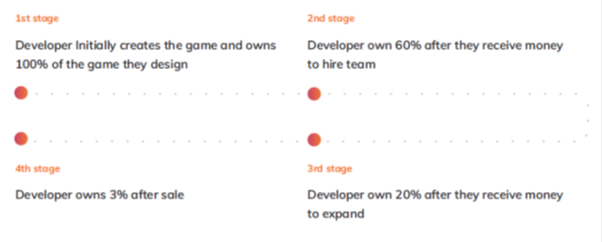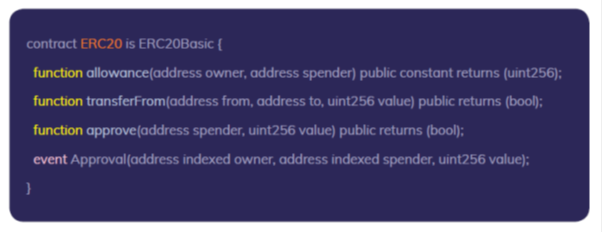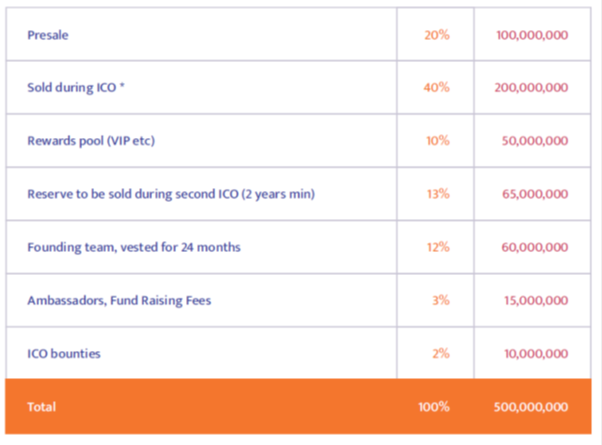JOY
https://joytoken.io/
Introduction
The existing gaming marketplace
The existing Gaming ecosystem is largely reputation driven — a reputation built up by increased advertising. To acquire and retain players, casinos are forced to spend large amounts in order to build trust and reputation through brand awareness. In addition, large casinos control game development. Players are forced to trust these casinos because a lack of transparency means that players can’t track their wagers and thus can’t assess the legitimacy of each bet.
Smaller developers also suffer because they are paid a small percentage of the games revenue and face difficulties when publishing a new game, such as: lack of immediate income and access to the large gaming platforms.
The Joy Gaming solution
Joy Gaming’s solution is blockchain-based and it allows developers to create games that are run on its backend through a smart contract, rather than directly on the blockchain. As all the results are recorded within the blockchain, there is significantly lower fraud. Thus players can verify that developers are running games exactly as described on the blockchain. Further, game developers and software houses can connect and integrate with liquidity providers, such as casinos, to provide access directly to their games. Both the casinos and the developers benefit from the additional revenue and increased game innovation. The lack of reputation of any specific site can be offset by the fact that rules and underlying infrastructure of the games are recorded on the blockchain (in addition to the approval system before games are allowed to go live on the Joy Gaming network).
Token Sale
The Token
JoyTokens will be available for purchase on the Ethereum network as an ERC20 token. There is a current challenge with the ERC20 token: if you send your token to a Smart Contract, you have to use the “approve + transfer form” function to make the transfer. But, if you send your token to an externally owned address, you have to use the “transfer” function. Unfortunately, if you make a mistake using those functions, then the money is lost.
Sample code for the ERC20 token interface
We are aware of this challenge and are working to ensure it will not happen to our Clients. We plan to upgrade to the new and under-development ERC223 standard (after it is fully developed). The ERC223 has a new feature that triggers, in the case of a scenario explained above, and the money is automatically sent back to the client.
Token sale structure
Cryptocurrency accepted: Ether
Hard-cap: JoyToken sale has a hard-cap of [ ].
Soft-cap: JoyToken sale has a soft-cap of [ ]. If the total amount raised ist below [ ], the offering is considered failed.
Timescale: starting in [ ] and lasting for up to 31 days or before all the tokens are distributed.
Oversubscription: when JoyToken offering raises more than [ ], the token sale will be closed immediately. There is a chance of oversubscription. In such an event, the exceeding amount of fund will be returned within 15 days after the close of the token sale. Please note that no interest will be paid in such case.
Failure: If the token sale does not hit the soft-cap, it will be considered a failed token sale. In such case, the offering will be terminated immediately with the exceeding amount of fund returned within 15 days after the close of the token sale. Please note that no interest will be paid in such case.
Other risks: The sale of the tokens involves a number of other risks that are explained in the Private Placement Memorandum (PPM) that accompanies the token sale documents. Those risks include, without limitation, potential loss of value in the tokens, inability to resell the tokens, failure to develop the Joy Gaming network, and viability of technology risks. The reader is urged to read the PPM for a fuller explanation of the risks and to obtain proper counsel before proceeding with any investment.
Token Distribution
Source
website : https://joytoken.io/
whitepaper : https://joytoken.io/white-paper.html
ann thread : https://bitcointalk.org/index.php?topic=2625250.0
bounty thread : https://bitcointalk.org/index.php?topic=2648937.0
telegram : https://t.me/joytoken
whitepaper : https://joytoken.io/white-paper.html
ann thread : https://bitcointalk.org/index.php?topic=2625250.0
bounty thread : https://bitcointalk.org/index.php?topic=2648937.0
telegram : https://t.me/joytoken




Comments
Post a Comment